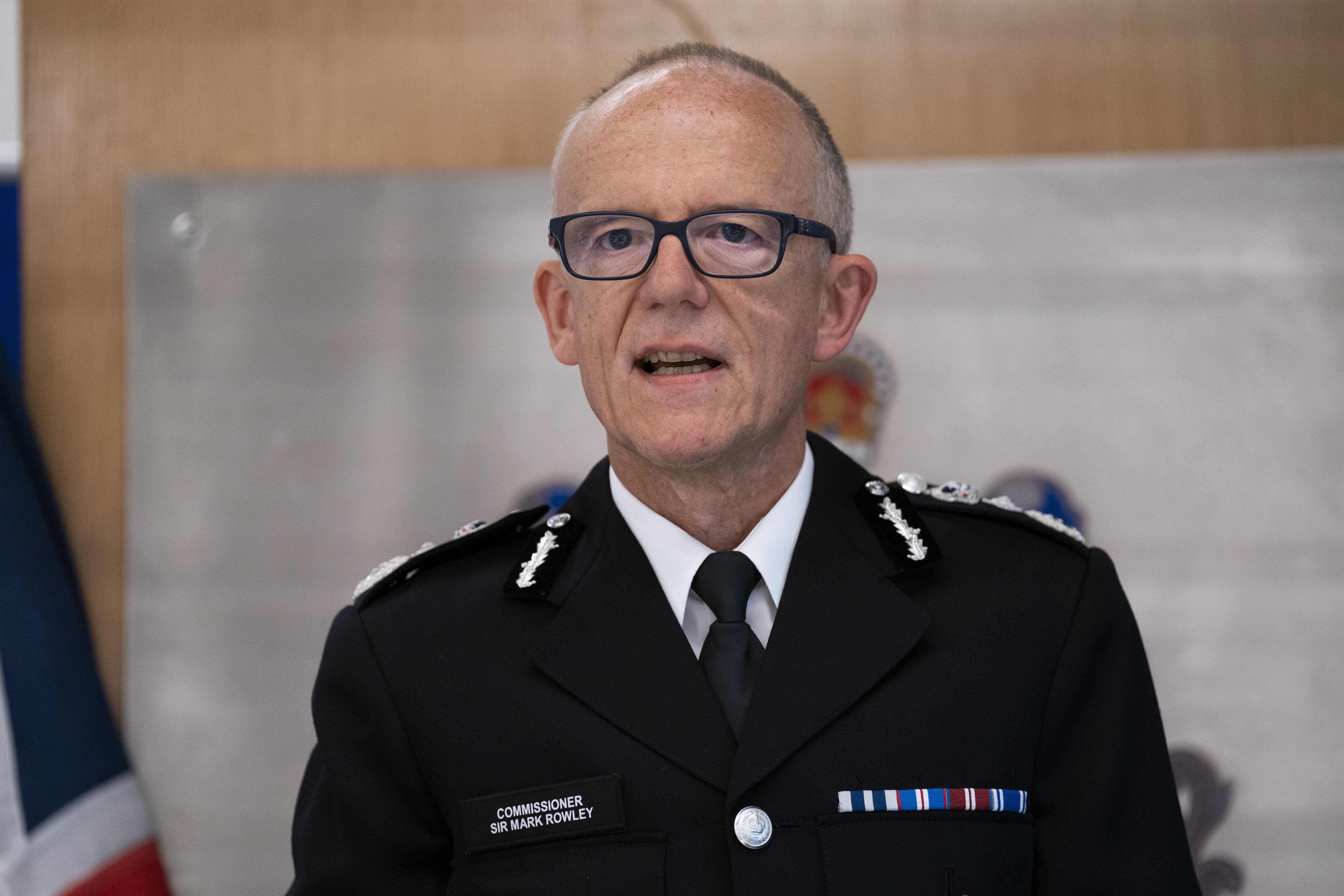Only one in five calls to the Met are about crime, says force chief
Sir Mark Rowley said he plans to begin “pushing back” on dealing with non-police issues such as mental health callouts.

Your support helps us to tell the story
From reproductive rights to climate change to Big Tech, The Independent is on the ground when the story is developing. Whether it's investigating the financials of Elon Musk's pro-Trump PAC or producing our latest documentary, 'The A Word', which shines a light on the American women fighting for reproductive rights, we know how important it is to parse out the facts from the messaging.
At such a critical moment in US history, we need reporters on the ground. Your donation allows us to keep sending journalists to speak to both sides of the story.
The Independent is trusted by Americans across the entire political spectrum. And unlike many other quality news outlets, we choose not to lock Americans out of our reporting and analysis with paywalls. We believe quality journalism should be available to everyone, paid for by those who can afford it.
Your support makes all the difference.Only one in five calls to Britain’s biggest police force are actually about crime, the head of the Metropolitan Police has said.
Sir Mark Rowley said he plans to begin “pushing back” on dealing with non-police issues such as mental health callouts.
He told delegates at the joint annual summit of the National Police Chiefs’s Council and the Association of Police and Crime Commissioners that only 22% of calls the Metropolitan Police receives are about crime.
Some of the officers I talked to are more worried about getting in trouble for not filling in forms correctly than they are confronting dangerous people on the streets
He is looking at ways that the force can stop sending officers to sit with patients in mental health crisis as they wait in A&E, and to certain welfare checks.
Sir Mark also said that the force had suffered “death by 1,000 paper cuts” because of the levels of bureaucracy involved in recording crime.
He told reporters: “Some of the officers I talked to are more worried about getting in trouble for not filling in forms correctly than they are confronting dangerous people on the streets.”
Chairman of the NPCC Martin Hewitt told the summit that around seven extra officers could be deployed to every force in England and Wales if the number of staff involved in crime recording could be cut by half.
It was estimated last year that around 1,200 staff were involved in crime recording compliance, at an annual cost of £47million.
Mr Hewitt said that in England and Wales, around half of calls to police forces are about crime.
He said: “There are various figures and estimates but I don’t think there is any doubt that over half of all calls for service we receive are something other than a crime.
“Some are entirely legitimate police activity, but a substantial proportion see police stepping in to health and social work because of an absence of other service provision.
“This issue has been raised at every one of these summits and I, and many others, have discussed it with every recent home secretary and policing minister.
“But there has been no meaningful change – and that needs to happen if we are to improve crime reduction and detection rates.”
The Home Office has commissioned a review of productivity in policing that will be led by Met officer and former Police Scotland chief Sir Stephen House.
Home Secretary Suella Braverman told the summit she would “take the scissors to any red tape that gets in your way”.
She said: “I am concerned that crime recording requirements can be seen as too complex and burdensome.
“I am committed to working with the police to see how recording can be simplified without compromising on putting victims first.
“I also want to see policing and the National Health Service work better together to support individuals experiencing acute mental health distress so that people in need of medical help get the right care at the right time, while also reducing inappropriate demand on policing.”